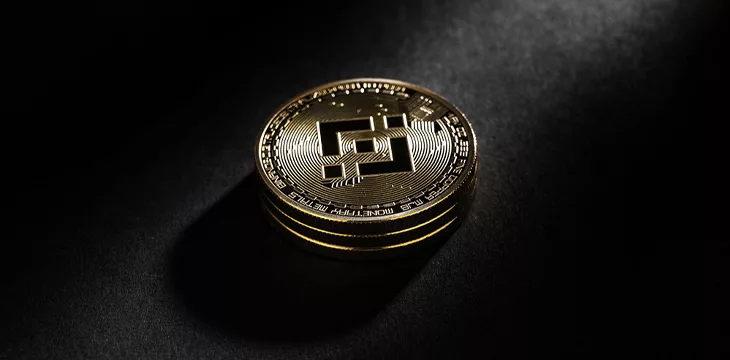|
Getting your Trinity Audio player ready...
|
Binance had a rough ride in front of the judge weighing whether to dismiss the civil suit filed against the exchange by the U.S. Securities and Exchange Commission (SEC).
Monday saw the SEC square off against the U.S.-licensed Binance.US before Judge Amy Berman Jackson in the U.S. District Court for the District of Columbia. The hearing focused on Binance’s motion to dismiss the SEC’s 2023 complaint accusing the exchange and its owner Changpeng ‘CZ’ Zhao of ‘calculated evasion[s] of U.S. securities laws.’
The said evasions include selling unregistered securities to the public, wash trading to pump token prices, transferring U.S. customer funds to CZ-controlled overseas accounts, lying about its ability to monitor transactions for non-compliance, and failing to prevent U.S. customers from accessing Binance’s much larger international dot-com exchange.
Binance’s motion to dismiss cited the SEC’s alleged failure to prove that transactions on the exchange—including its staking service—involved unregistered securities. Binance also argued that its customers weren’t exposed to a ‘risk of loss’ by participating in its staking program. Finally, Binance claimed that the so-called ‘major questions’ legal doctrine prohibited the SEC from exercising authority over digital asset transactions.
On the latter topic, Jackson appeared skeptical of Binance’s argument, saying she was “not inclined to think it qualifies under the very narrow circumstances” of this case. The judge handling the SEC’s similar complaint vs. the Coinbase (NASDAQ: COIN) exchange appeared equally hesitant to broach the ‘major questions’ issue last week during a hearing on Coinbase’s motion to dismiss.
Jackson’s skepticism may soon prove moot, given that the U.S. Supreme Court appears eager to overturn the ‘Chevron deference’ that allows regulatory agencies such as the SEC to apply their particular set of skills to subjects not explicitly assigned to them by federal law (as some claim re the SEC and digital assets).
Regardless, Jackson challenged Binance’s view that existing securities laws were irrelevant in this case because they didn’t mention digital assets. Jackson reminded Binance that case law “says over and over and over again” that securities regulations were designed to be “flexible” to accommodate new financial innovations, including digital assets. Binance’s team countered that there had to be some limits on how far existing securities laws can be stretched; otherwise, real estate might qualify.
Testing Howey
Predictably, much of Monday’s hearing focused on the Howey test for determining whether an asset is a security, including the existence of an ‘investment contract’ between buyers and sellers of digital tokens. Binance’s team argued that exchange customers signed no such contract, and thus, the tokens changing hands on its platform couldn’t be securities.
Jackson challenged Binance’s “a little too cute” reading of Howey, pointing out that it defines an investment contract as ‘a contract, transaction or scheme.’ In other words, “one of three things. It didn’t say a contractual transaction or scheme.” Jackson added a little snark by asking Binance “if any court ever expressly adopted your opinion” on this subject.
Regarding Howey’s‘ investment in a common enterprise’ trigger, Binance argued there was no pooling of funds in its ‘secondary’ sales to the exchange’s retail customers. Binance also took exception to the SEC categorizing BUSD (Binance’s former in-house stablecoin) as a security, arguing that “there’s no reasonable expectation of profits” in buying a coin designed to hold a 1:1 ratio with the U.S. dollar.
The SEC countered that Binance was promoting BUSD as part of an ‘ecosystem’ that included its staking program, through which retail customers could earn a yield (aka profit). Jackson appeared to support the SEC’s broader view, saying the issue was “the totality of the circumstances, how was [a token] sold, how was it marketed, what were the reasonable expectations for return?”
The SEC was keen to remind Jackson of the summary judgment the SEC won last month in its complaint against Terraform Labs (in the same District Court under a different judge). That judgment found that sales of LUNA, UST, and other Terraform-specific tokens qualified as investment contracts under Howey. The SEC added this ruling to its cases against Binance and Coinbase a month ago. However, Jackson offered no indication as to how much weight she planned to give this judgment.
Binance was keener for Jackson to contemplate the earlier ruling in the SEC’s suit v. Ripple Labs that found the ‘programmatic’ aka ‘secondary’ sales of the XRP token to retail customers didn’t constitute an unregistered security transaction (although sales to institutional buyers did).
What’s in a name?
Binance appeared to annoy Jackson by trying to argue that, during an appearance before the House Financial Services committee last September, SEC chairman Gary Gensler was unable to give a concrete answer on whether or not a ‘tokenized Pokémon card’ qualified as a security.
Jackson pointed out that when Binance was testifying in her court last June, she’d asked if Binance’s in-house BNB token was a commodity. Binance’s attorney responded at the time that BNB was “a crypto asset,” prompting Jackson to respond: “What is that? No one wants to tell me.” On Monday, Jackson observed that Binance was now arguing that BNB was indeed a commodity.
Fair warning
Jackson expressed skepticism regarding Binance’s claim that the SEC hadn’t provided ‘fair notice’ of its view that most tokens are securities requiring registration. The SEC argued that Howey’s language was “clear” enough that it wasn’t incumbent upon the regulator to “reach out to specifically remind” individuals and entities in every single instance.
However, Jackson acknowledged that there was “a legitimate discussion” to be had regarding the length of time the SEC took to bring some kind of order to the digital asset sector. Jackson also challenged the SEC as to how issuers were “supposed to know when they cross the line” in terms of what is or isn’t a security.
Jackson didn’t offer any decision on Monday, but given the general tone of the proceedings, Binance should probably prepare for its eventual day in court. The SEC is widely viewed as having fared far better on Monday than it did during the Coinbase hearing, which may simply be the price Binance pays for having so flagrantly flouted the law all these years.
Blast from the past
A final observation on Monday’s hearing courtesy of John Reed Stark, a former director of the SEC’s internet enforcement division, who issued a lengthy tweet following last week’s Coinbase hearing on the subject of bespoke ‘crypto’ regulations.
Stark likened the ‘crypto’ sector’s claims of a regulatory void to similar claims made by nascent internet operators in the 1990s. Stark quoted an SEC colleague—who he notes with some irony is now part of Binance’s defense team—saying at the time:
… for years, the SEC has relied on the general prescriptions contained in the federal securities laws and has tried to apply them practically, and with common sense … With each new initiative, some lawyers, academics, and those whose behavior has been challenged have complained: where is it specifically written that this behavior is illegal? If there is no black letter rule, they argue, the government’s efforts amount to ex post facto punishment, reflecting the bureaucratic proclivity to expand power and broad jurisdiction. The SEC’s approach, however, has not been improperly expensive, nor has it involved after the fact regulation. Rather, the SEC has tried to adopt a reasoned, common sense, application of the basic requirements of the federal security laws to new market conditions as they have evolved over the years.
Seems as good a place as any to repeat Upton Sinclair’s maxim that “it is difficult to get a man to understand something when his salary depends on his not understanding it.”
Good work if you can get it
Binance.US remains a hobbled entity following the SEC suit and last November’s $4.3 billion settlement of criminal charges against Binance.com and CZ. Its 24-hour trading volume is averaging a woeful $17 million, and customer assets held on the exchange are single-digit shadows of their former selves. Nevertheless, Binance.US appears determined to go down swinging.
Earlier this month, Binance.US announced hiring Lesley O’Neill as its new chief compliance officer. (Stop laughing!) O’Neill, who previously served a similar role at digital identity verification service Prove Identity, replaces Tommy Weinrib, who jumped ship in November after 18 months on the job.
Weinrib was part of a mass exodus of Binance.US execs, including former CEO Brian Shroder, who offered no comment on his way out the door in September. Chief risk officer Sidney Majalya and head of legal Krishna Juvvadi pulled their ejection seats the month of Binance’s criminal settlement.
Pump up the volume
Meanwhile, business at the mothership has rebounded since the dark days of November, when panicked customers pulled billions of dollars’ worth of assets off Binance.com. DeFiLlama stats show net inflows of around $4.6 billion since November, with $3.5 billion coming since the new year began.
However, this surge could prove to be Binance’s dead cat bounce, given the stipulations of the exchange’s settlement with the Department of Justice (DOJ). That settlement mandated the appointment of a third-party transaction monitor tasked with ensuring that Binance doesn’t fall victim to criminal recidivism.
The agreement gave Binance 30 days (from November 21) to submit a list of three potential candidates for this transaction monitor role. From there, the DOJ and the Treasury Department’s Financial Crimes Enforcement Network (FinCEN) were given 30 days to determine whether any of Binance’s candidates were sufficiently independent to qualify.
This means a decision on this monitor was likely made sometime this week. There are some additional timelines before the monitoring begins in earnest, including the monitor developing a ‘written work plan’ that meets with the DoJ’s approval. But the bottom line is that what has been referred to as Binance’s “24/7, 365-days-a-year financial colonoscopy” will soon be underway—and will continue for the next five years.
Any criminals not wanting to have their fiscal orifices inspected should leave while the leaving’s good.
Follow CoinGeek’s Crypto Crime Cartel series, which delves into the stream of groups—a from BitMEX to Binance, Bitcoin.com, Blockstream, ShapeShift, Coinbase, Ripple,
Ethereum, FTX and Tether—who have co-opted the digital asset revolution and turned the industry into a minefield for naïve (and even experienced) players in the market.

 05-08-2025
05-08-2025 





